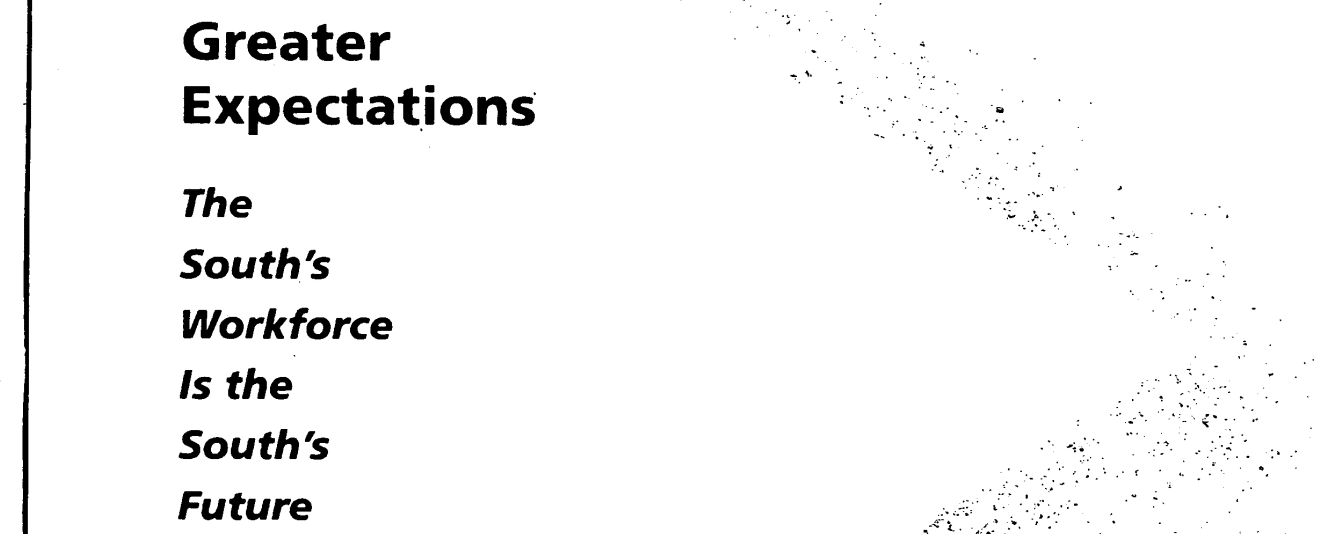education

Connecting Minority-Serving Institutions and Rural Research
Exploring the potential for MSIs to produce more rural research and integrate rural perspectives into established and developing rural-focused research systems.

Investing in People: Reinventing Education
Paper provides overview of issues facing education in the context of an increasingly globalized economy.

Greater Expectations: The South’s Workforce is The South’s Future
Paper states Southern workforce should direct policy focus on skill training to keep up with changing economic tides and industries.

Piney Road: Work, Education, and Family Dynamics
Paper aims to use case study of several families in the Piney Road community of Georgia to highlight situational aspects of poverty, education, family, and work in the Rural South.

A Community Researcher’s Guide to Rural Data: Where to find answers to questions about Rural America’s Population and Labor Force, Income, Health, and Education, Industries and Government
This file, "A Community Researcher's Guide to Rural Data," by Priscilla Salant, is a manual prepared for the Rural Economic Policy Program of The Aspen Institute, funded by The Ford Foundation.

A Community Researcher’s Guide to Rural Data
Manual was prepared in order to present reliable and timely data as a prerequisite for sound planning and policy development.

Would You Like To Swing on a Star? Opportunities to Improve Education in Kentucky’s Fifth Congressional District
This report, "Would You Like To Swing on a Star? Opportunities to Improve Education in Kentucky's Fifth Congressional District," was prepared by the Mountain Association for Community Economic Development (MACED) in May 1986. It addresses the intertwined problems of poor economic conditions and educational attainment in Kentucky's Fifth Congressional District, which had the lowest percentage of high school graduates in the nation at the time.

Improving Education in Kentucky’s Fifth Congressional District
Research findings on poor economic conditions and issues of educational attainment in Kentucky's 5th Congressional District, one of the lowest performing districts in public education in the U.S. at the time.
